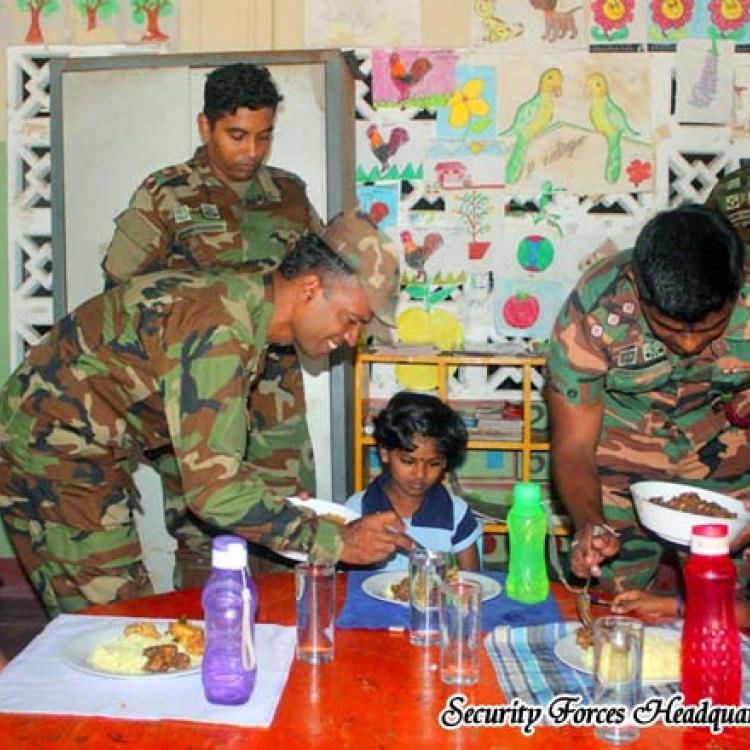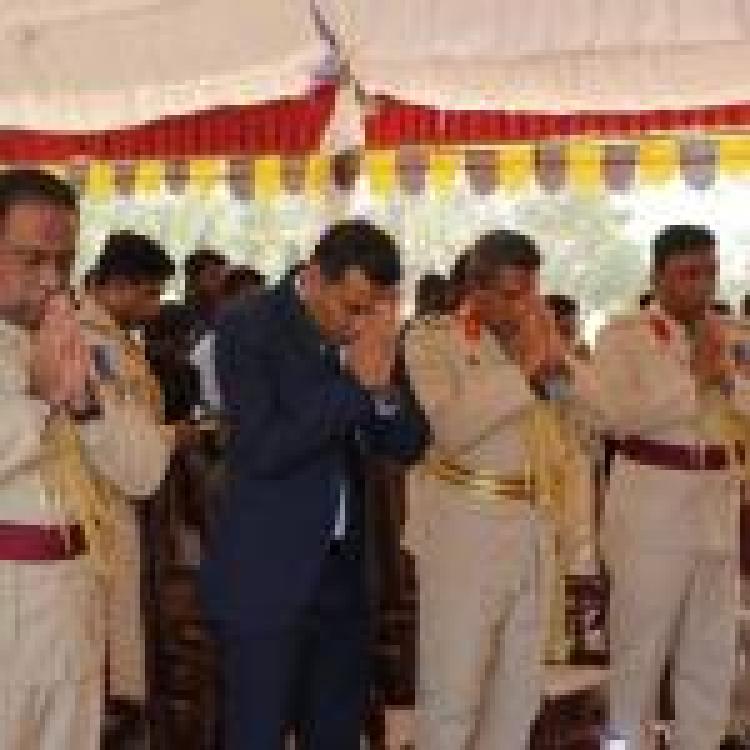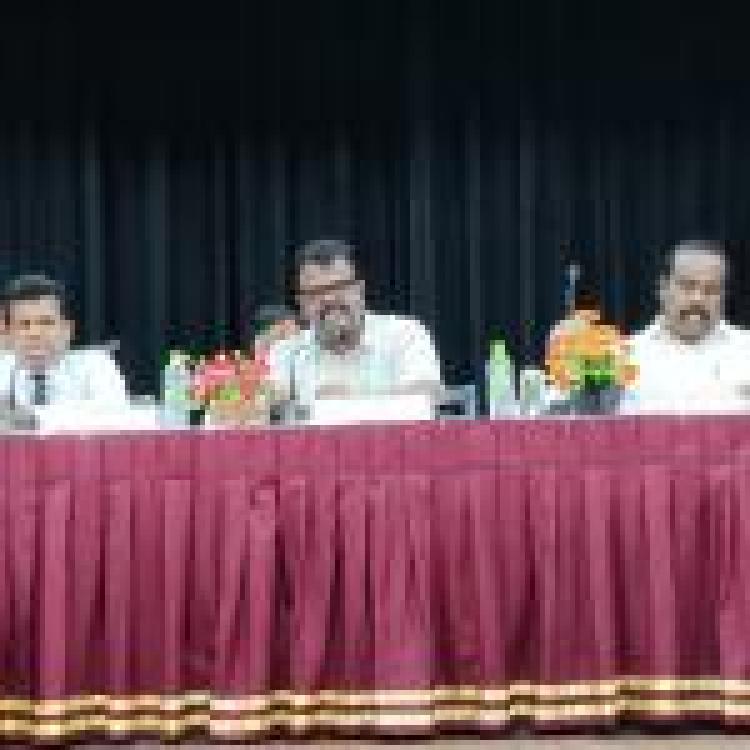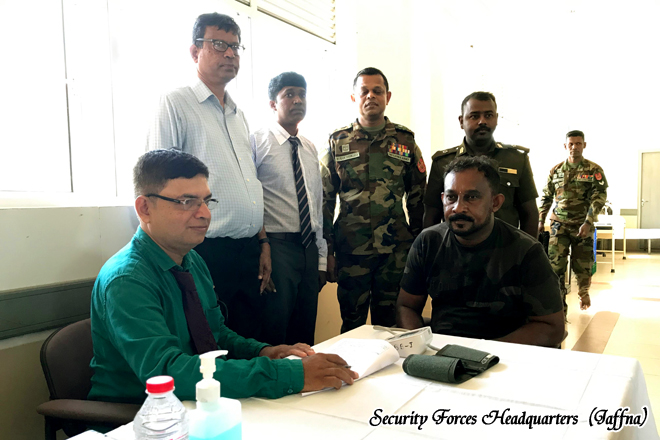
Sri Lanka’s security forces continue extending heavy militarisation of the North by extending its influence in the form of healthcare programmes, food donations and religious ceremonies. Predominantly Tamil-speaking areas in the Northern provinces are subject to the integration of the military in their lives.
Jaffna
In Poonakary, accused war criminal Major General Wickramasinghe led a blood donation campaign on 2 October 2024 at Poonakari Hospital, Jaffna. This controversial blood donation event saw a total of 40 troops of the 552 infantry brigade donate blood. According to a dossier released by the International Truth and Justice Project (ITJP) Wickramasinghe was involved in frontline combat at the height of the armed conflict in 2008-9, where he commanded the 8th battalion Gajaba Regiment. 

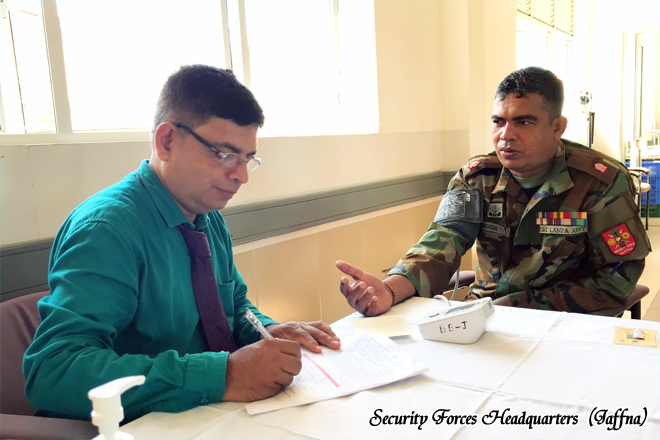
During 2009, the Gajaba Regiment was involved in attacks in Vishwamadu, Puthukkudiyiruppu and in Puttumattalan. These attacks were referenced in the United Nations Report of the OHCHR Investigation on Sri Lanka (OISL) as locations where human rights abuses occurred. In these attacks, civilians and civilian objects were attacked and the report notes that Wickramasinghe was “in violation of international humanitarian law and the principles of distinction and proportionality for which he bears criminal responsibility.” Furthermore, in 2007 during a peacekeeping mission in Haiti, Wickramasinghe was listed as one of the staff officers on island when allegations of sexual exploitation and abuse by members of the Sri Lankan peacekeeping forces were investigated resulting in them being repatriated to Sri Lanka. The report notes that " his inaction and failure to address these crimes raises his own complicity in the cover-up of these crimes"
Meanwhile, in Kopay, the 51 Infantry Division organised a blood donation programme, where more than 100 officers were reported to have donated blood. These blood donation drives have been met with condemnation from Tamil civil society groups and political representatives and yet they remain to occur annually to commemorate the anniversary of the Sri Lankan Army.
In Thaiyiddy, Sri Lanka security forces conducted the religious opening ceremony to inaugurate an illegally constructed Buddhist temple, Tissa Raj Vihara. The next religious ceremony is planned to be held on 27 & 28th October at the Naga Vihara despite continuous protests by Tamil residents.
The North-East has been subject to Sinhalisation with increased intensity since the end of the armed conflict, with Buddhisization of the majority Tamil-speaking areas enabled primarily through military sponsorship.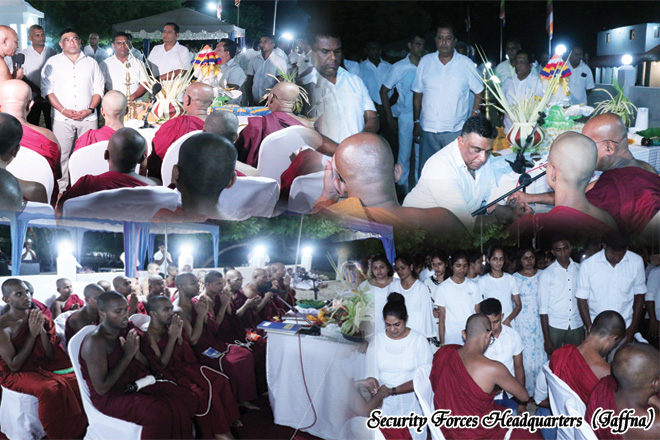
Vavuniya
In Pandrikkeithakulam, Vavuniya, spectacles were distributed by the 212 infantry bridge and 56th infantry division.
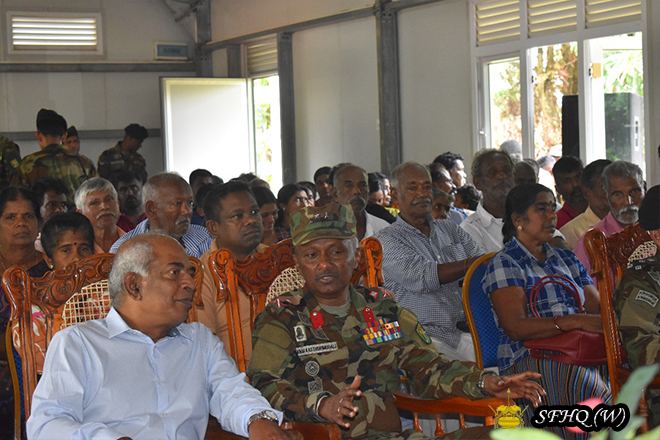
In Kokeliya, the 56th Infantry Division also presented 20 low-income families with dry ration packs. The village at Kokeliya is known as a “reconciliation village”, where the Sri Lankan government forcibly settled Sinhalese soldiers married to Tamil women in the North-East in 2016. 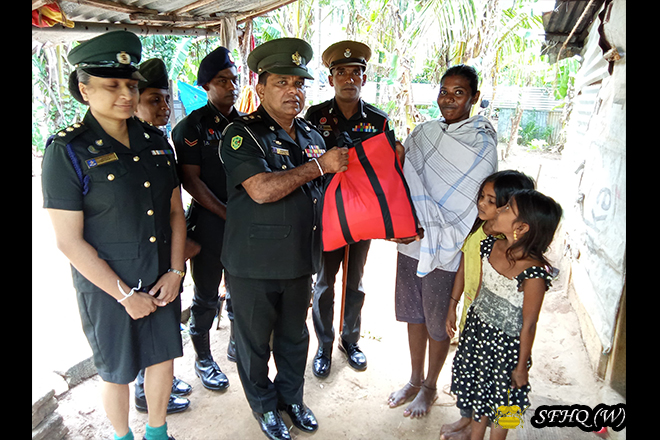
Killinochchi
In Pallai, a public awareness walk against cancer, from Pallai Primary Hospital to the Divisional Secretary Office, the troops of 23rd Battalion participated and arranged a drinking water point for the participants. 
Cancer rates remain high across the North-East. A number of rehabilitated LTTE cadres have fallen sick or passed since their release from the states 'rehabilitation programme'. It was alleged that they had been given poisonous injections during their detainment. It was claimed that the deaths of 104 former LTTE cadres was a result of this by senior Tamil politicians and Former Chief Minister C V Wigneswaran.

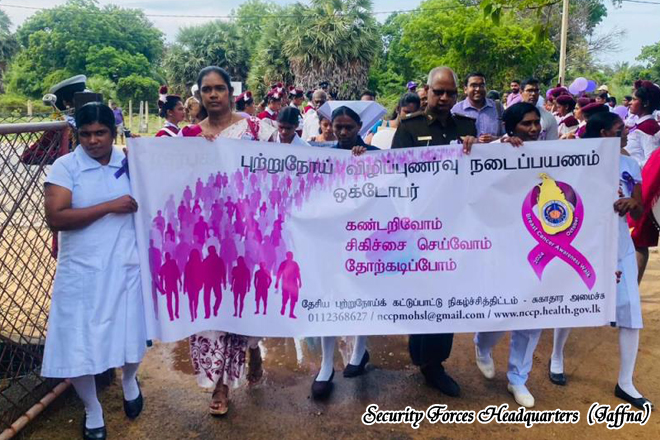
Since the end of the armed conflict, the presence of the Sri Lankan military remains extensive in various facets of civilian life such as health, welfare and religious identity of predominantly Tamil-speaking areas in the Northern provinces.

